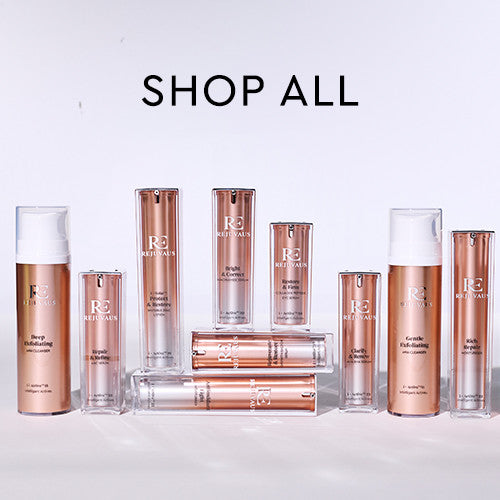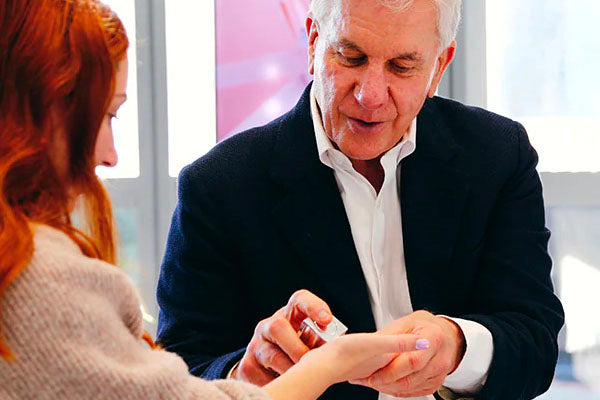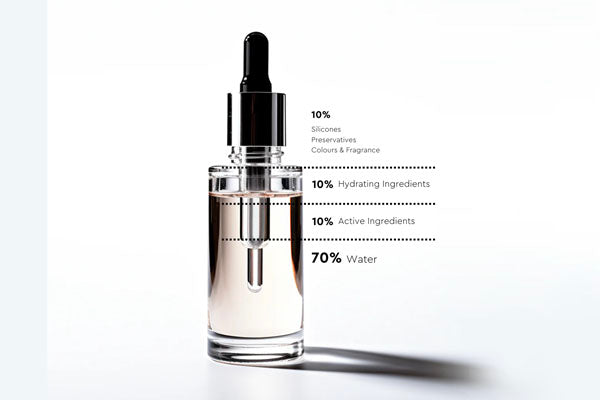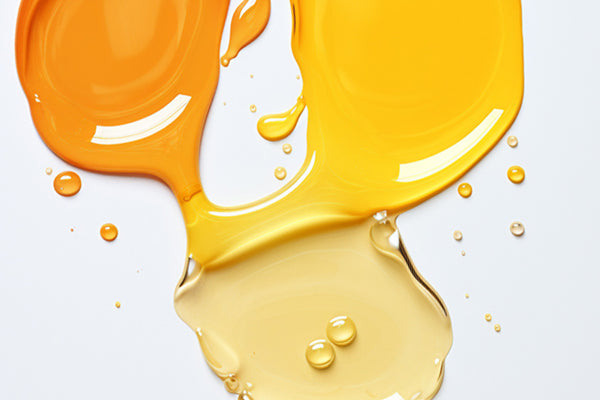You have no items in your shopping cart.
02-13-2023
Types of Vitamin A in Skincare:
Retinols, Retinyl, Retinals, Retinaldehyde
DR GARRY CUSSELL

![[C2] Gentle AHA Exfoliating Gel Cleanser & Toner Rx Gentle Cleanser](https://cdn.shopify.com/s/files/1/0507/0477/7393/files/Artboard_1_886f7076-a3ed-4488-85e9-581dd84f168a_337x.jpg?v=1691456489)
If Vitamin C is the front and centre skincare ingredient of the year, Vitamin A is the long-shining star, prescribed as an anti-ageing and acne management ingredient for over 50 years.
Both ingredients have skin-boosting benefits, and they can work in synergy together. Vitamin A in skincare helps to stimulate collagen production while Vitamin C helps your skin cells synthesise the new collagen they produce. Both vitamins are antioxidants, which means they can reduce free radical damage and ageing caused by oxidative stress. Vitamin A can also help with oil regulation and acne.
Now for the draw back; Vitamin A can cause sensitivity when you first start using it, and not all forms of Vitamin A are created equally. Here is everything you need to know about the different types of Vitamin A and how to incorporate it into your skincare routine.
Types of Vitamin A in skincare
The chemical term for all forms of Vitamin A is retinoid, but the most common forms of retinoids you’ll find in skincare are retinol or retinal.
They may have different names depending on their molecular structures, but most common forms of Vitamin A can be classified as a retinol or a retinal.
- Retinols
- Retinyl
- Retinyl palmitate
- Retinyl acetate
- Retinals
- Retinaldehyde
To understand what this all means, it helps to understand how Vitamin A works in the body.
Certain foods (like carrots or orange-fleshed pumpkins) contain beta-carotenes which are converted to Vitamin A in the body.
Simply put, when beta-carotene is ingested and converted into retinol, retinol converts into retinal, retinal is converted to make retinoic acid, and retinoic acid is the form that interacts with cell DNA to have an effect on your skin.
When you use skin care products with retinol or retinal, you’re using derivatives of Vitamin A that convert into retinoic acid in your skin. You can sometimes get straight retinoic acid, but it’s normally prescription-only because it can be quite strong.


Which type of Vitamin A should I use?
Both retinol and retinal can help accelerate skin cell regeneration and collagen production to reduce fine lines, ageing and blemishes. Both can also help regulate oil production in the skin. Remember that retinol converts into retinal and retinal converts into retinoic acid to produce these results. Using retinal just means that your skin gets to skip a step.
With any form of Vitamin A, there may be some risk of irritation when introducing it to your skin. This is where Retinaldehyde comes in. According to Rejuvaus founder Dr Garry Cussell, Retinaldehyde (encapsulated) is a newer form of Vitamin A that is more effective but less irritating than other forms of Vitamin A.
Retinaldehyde, however, is difficult to suspend in product formulations, and it must be kept in opaque, air-tight packaging, so very few brands have managed to incorporate Retinaldehyde successfully in their products.
How much Vitamin A should I use in my skincare?
When you first start using Vitamin A, you should introduce it slowly to avoid irritation. Apply your Vitamin A serum every other night and gradually move to every night as your skin gets used to it. We recommend night-time use to begin with because it will allow the vitamin to take effect while you sleep. Vitamin A can also increase sensitivity to sunlight, and night-time use will reduce that.
Once applied, the lifespan of Vitamin A in skincare is 8 hours, so you can apply it morning and night once your skin has adjusted to nightly use, but only if you take steps to protect your skin from UV radiation from the sun (which you should be doing anyway).
When you first introduce Vitamin A, your skin may also go through a bit of a purge. There's more on that below.


How do I know if I’m purging or having a reaction?
Vitamin A increases your natural cell turnover, so when you first start using it, your skin may go through a sensitive phase while it purges dead cells and other build up.
You may notice some mild redness and flaking, or even tiny pink pimples. This is normal within the first few weeks with Vitamin A, and it should clear up.
If the redness, light flaking or pimples persist, or if you experience itchiness, stinging or more moderate flaking, stop using your Vitamin A and consult a product specialist or beauty therapist.
Can I use skincare with Vitamin A while I’m pregnant?
Mothersafe, a NSW counselling service for exposures during pregnancy, produced a reliable factsheet on Skincare, Hair Care and Cosmetic Treatments in Pregnancy and Breastfeeding. The factsheet states that doses of Vitamin A taken orally are a matter of concern during pregnancy, but the amounts of Vitamin A that are absorbed into the skin from non-prescription skincare products are usually minimal.
When considering whether a product is safe for pregnancy, the same factsheet advises that you must consider first if the ingredients are safe during pregnancy and second if the ingredient can reach the baby by being absorbed through the skin into the system.
Although Rejuvaus use an Encapsulated Retinaldehyde which clinical studies have NOT found in the bloodstream after use, it could be considered safe to use in pregnancy. However if you have any concerns, we recommend speaking to your doctor before proceeding.

Dr Garry Cussell
Dr. Garry Cussell strongly believes everyone's skin can look beautiful at any age regardless of their history. We enable anyone to achieve professional results safely and easily in the comfort of their own homes.
Dr Cussell is the founder of Rejuvaus Skincare and Rejuvenation Clinics of Australia. He is a member of the Australasian Society of Cosmetic Medicine and has been a qualified cosmetic practitioner for over 37 years.
He is a leading cosmetic medicine expert in a wide range of non-surgical skin procedures such as skin tightening and strengthening, stem cell and growth factor skin, and skin repair lasers.







